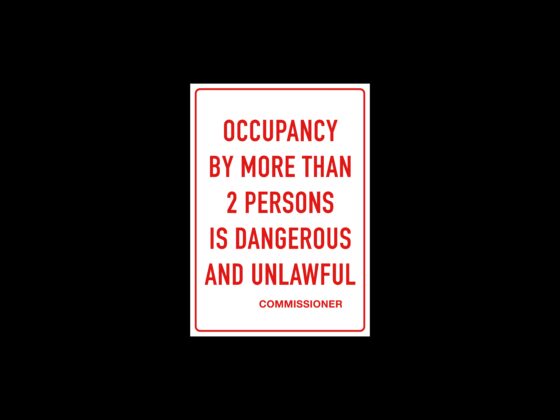
Attribute-Based Selling (ABS) is an innovative approach in the hotel industry that has gained significant traction in recent years. This comprehensive overview will explore the concept of ABS, its implementation, benefits, challenges, and potential implications, with a particular focus on the issue of overselling attributes.
Definition and Implementation of ABS
Attribute-Based Selling is a modern sales strategy that allows guests to customize their hotel stay by selecting specific room attributes or features as separate purchasable options. Unlike traditional room selling, which offers rooms as standard packages with predefined features, ABS breaks down room features into individual attributes. This enables guests to build their ideal room experience by choosing the features they value most, such as a balcony, ocean view, high floor, or access to exclusive amenities.
The implementation of ABS requires robust technology integration, typically involving a Cloud-based Hotel Property Management System (PMS) to manage the customization process and track inventory. Systems like Hotelogix and Stayntouch offer solutions that support ABS, allowing seamless integration with booking engines to facilitate attribute selection during the booking process.
From the guest’s perspective, ABS provides a transparent booking process where they can see and select additional attributes with clear upcharges. This approach ensures that guests are fully aware of their stay’s composition and cost before finalizing their booking, leading to a curated and satisfying experience.
Current Adoption and Market Trends
While specific data on the adoption rates of ABS across the entire hotel industry is not readily available, the trend is gaining traction, particularly among larger hotel chains and boutique hotels. The adoption of ABS is seen as a strategic move to differentiate properties in a competitive market and enhance guest satisfaction through personalized experiences.
Large hotel chains are increasingly adopting ABS to standardize attribute offerings across multiple properties, enhancing brand consistency and improving upselling opportunities. However, the complexity of implementation due to the scale and diversity of their portfolios can be a challenge. Boutique and independent hotels find ABS particularly advantageous for offering greater customization and personalization, which are key selling points.
Benefits of ABS for Hotels
- Increased Revenue and Conversion Rates: ABS enables hotels to offer more tailored products, potentially at lower prices, which can lead to higher conversion rates and overall revenue. By allowing guests to pay only for the attributes they value, hotels can optimize their pricing strategies and increase their average daily rates (ADR) and revenue per available room (RevPAR).
- Enhanced Customer Insights: By tracking which attributes guests are willing to pay for, hotels can gain valuable insights into customer preferences. This data can be used to refine marketing strategies and improve product offerings.
- Richer Cross-Selling Opportunities: ABS allows hotels to treat rate plan attributes as ancillaries, enabling them to offer additional services like breakfast or spa treatments alongside room bookings. This flexibility can enhance cross-selling opportunities and increase ancillary revenue.
- Brand Differentiation: In a competitive market, ABS allows hotels to stand out by offering a more personalized and transparent booking experience. This can help build brand loyalty and attract a diverse range of guests.
- Operational Flexibility: ABS provides hotels with the ability to dynamically adjust pricing and inventory based on real-time demand and guest preferences, which can lead to more efficient inventory management and better alignment with market needs.
Benefits of ABS for Guests
- Personalized Experience: Guests can customize their stay by selecting only the attributes they value, enhancing guest satisfaction and ensuring they receive a stay tailored to their preferences.
- Potential Cost Savings: By choosing only the attributes they need, guests may find lower prices compared to traditional room type bookings, where they might pay for features they do not use.
- Simplified Booking Process: ABS streamlines the booking process by reducing the need to compare numerous room types and rate plans, making it easier for guests to understand what they are purchasing.
Challenges and Potential Drawbacks for Hotels
- Complex Implementation: Transitioning to an ABS model can be complex, requiring significant changes to existing property management systems (PMS) and central reservation systems (CRS). This may involve substantial investment in technology and training.
- Inventory Management: Managing inventory at a granular level to ensure the availability of specific attribute combinations can be challenging. It requires sophisticated algorithms and real-time data processing to optimize room assignments and pricing.
- Staff Training and Adaptation: Implementing ABS requires staff to adapt to new systems and processes, which can be resource-intensive and may disrupt operations during the transition period.
Challenges and Potential Drawbacks for Guests
- Decision Fatigue: Offering too many choices can overwhelm guests, potentially leading to decision fatigue and reduced conversion rates. Hotels need to balance the number of options with ease of decision-making.
- Uncertainty in Attribute Availability: Guests may face uncertainty if their preferred attributes are not available at the time of booking, which could affect their satisfaction and willingness to book.
The Issue of Overselling Attributes
One of the most significant challenges and potential drawbacks of ABS is the risk of overselling attributes. Overselling refers to the practice of exaggerating or overemphasizing certain attributes of a product or service to make it more appealing to consumers. In the context of ABS, this could mean highlighting features of a hotel room or service that may not fully meet the expectations set by the marketing efforts.
Implications of Overselling
- Consumer Disappointment and Trust Issues: When attributes are oversold, there is a risk that the actual experience may not meet the expectations set by the marketing. This can lead to consumer disappointment and erode trust in the brand. As noted in various contexts, overselling can lead to a backlash when the promised benefits are not realized.
- Reputation Damage: Consistent overselling can damage a hotel’s reputation. Negative reviews and word-of-mouth can spread quickly, especially in the digital age, affecting future bookings and customer loyalty.
- Legal and Ethical Concerns: There may be legal implications if the overselling is deemed misleading or false advertising. Ethically, it raises questions about the integrity of the business practices.
- Operational Challenges: Overselling certain attributes might lead to operational challenges, such as overbooking or under-delivering on promised services, which can strain resources and staff.
- Impact on Pricing Strategy: If attributes are oversold, it might lead to an unsustainable pricing strategy where consumers are unwilling to pay the premium prices once they realize the actual value does not match the marketed value.
Balancing ABS Benefits with Ethical Marketing
To mitigate the risks associated with overselling, hotels implementing ABS must focus on ethical marketing practices and accurate representation of attributes. This involves:
- Ensuring that the attributes highlighted in marketing efforts are realistic and deliverable.
- Providing clear and transparent information about each attribute to set accurate expectations.
- Implementing robust inventory management systems to prevent overbooking of specific attributes.
- Training staff to accurately represent room attributes and manage guest expectations.
- Regularly gathering and acting on guest feedback to refine attribute offerings and descriptions.
Future Trends and Expert Predictions
As ABS continues to evolve in the hospitality sector, several trends and predictions emerge:
- Increased Adoption: Experts predict that ABS will become more prevalent as hotels seek to differentiate themselves in a competitive market. The ability to offer personalized experiences is expected to be a significant driver of ABS adoption.
- Enhanced Guest Experience: As ABS becomes more widespread, it is anticipated that guest satisfaction will improve due to the increased ability to customize stays. This could lead to higher loyalty and repeat business.
- Technological Advancements: The integration of advanced technologies, such as AI and machine learning, is expected to facilitate the implementation of ABS. These technologies will enable hotels to analyze vast amounts of data to understand guest preferences better and offer personalized options.
- Sustainability and Ethical Considerations: As the industry moves towards more sustainable practices, ABS could play a role in promoting environmentally friendly options by allowing guests to choose sustainable attributes. However, ethical considerations around data privacy and the potential for manipulation in pricing strategies will need to be addressed.
- Future Innovations: Looking ahead, experts foresee further innovations in ABS, driven by advancements in AI and data analytics. These technologies will enable more precise targeting and customization, potentially transforming how hotels interact with guests and manage their offerings.
Attribute-Based Selling represents a significant shift in how hotels market and sell their rooms, focusing on personalization and flexibility. While it offers numerous benefits for both hotels and guests, including increased revenue potential and enhanced guest satisfaction, it also presents challenges, particularly in terms of implementation and the risk of overselling attributes.
The success of ABS in the hotel industry will largely depend on the ability of hotels to balance the benefits of personalization with ethical marketing practices and efficient inventory management. As the industry continues to evolve, ABS is likely to play a crucial role in shaping the future of hotel services and guest interactions. However, hotels must remain vigilant in addressing the potential drawbacks, especially the risk of overselling, to ensure long-term success and maintain guest trust in this new paradigm of hotel booking and experience.








